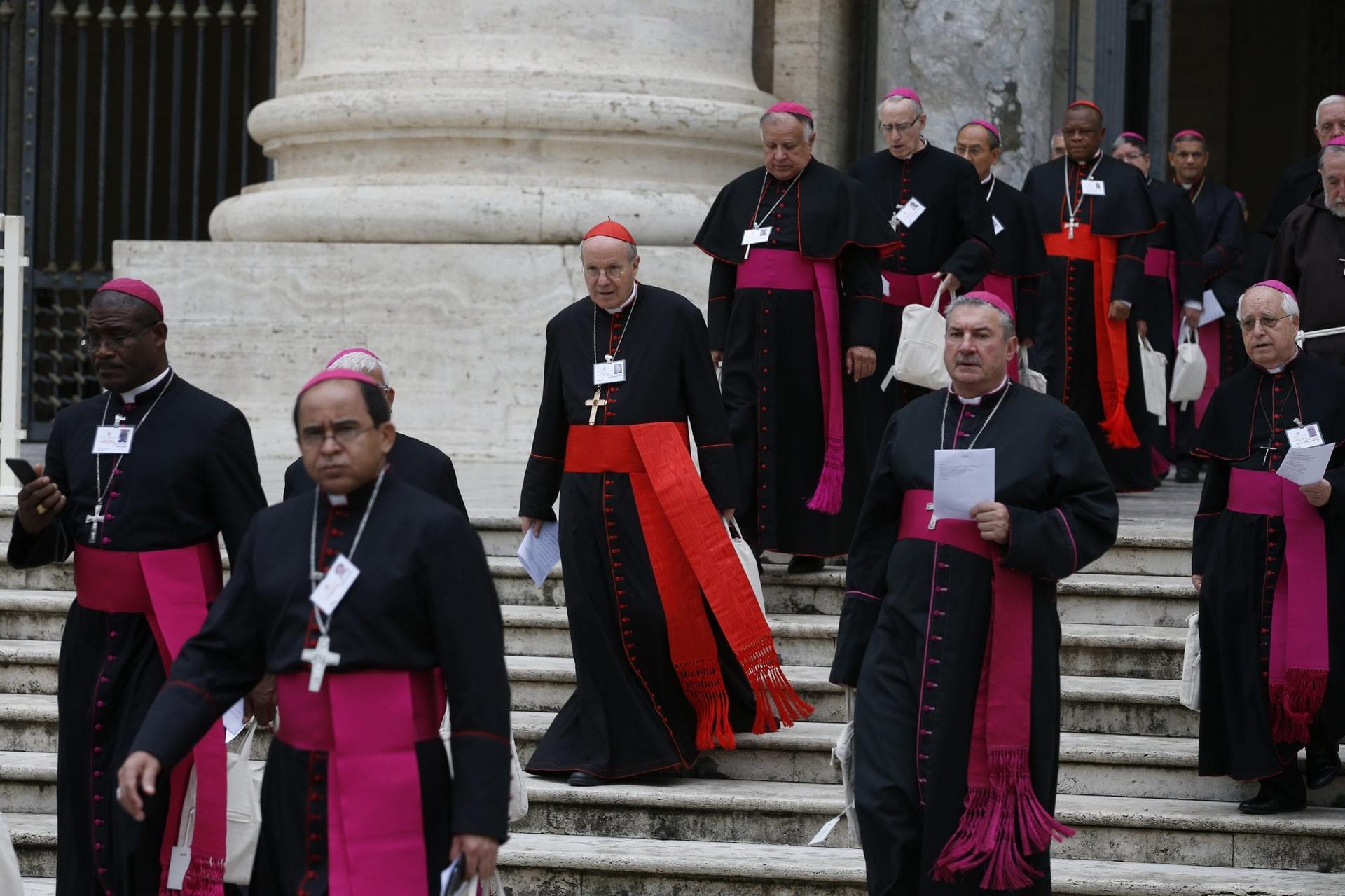ROME – Formally opening his much-ballyhooed Synod of Bishops on Synodality Saturday, Pope Francis expressed his desire that it be an experience in which everyone in the church participates rather than an “elitist” exercise.
The pontiff also prayed for the Holy Spirit to guide the discussions, thus preventing the Catholic Church “from becoming a ‘museum’, beautiful but mute, with much past and little future.” Visibly deviating from his prepared remarks, the pope noted that the Synod is neither a parliament nor an opinion poll.
“The Synod is an Ecclesial moment, and the protagonist is the Holy Spirit. Without the Spirit, there will not be a Synod,” he said, calling for unity, above all among the bishops.
Francis also invited those present to acknowledge the frustration and impatience felt by many pastoral workers, “members of diocesan and parish consultative bodies and women, who frequently remain on the fringes,” and urged dialogue between priests and laity, saying that he underlined this because sometimes, priests become “elitists” and become “the patrons of the barracks.”
The pope’s words came Oct. 9, as he was opening the Synod of Bishops: “For a Synodal Church: communion, participation and mission.”
In a speech in which he mentioned both the opportunities and risks this process may entail, Francis listed three of each.
He began by saying this is an opportunity to move structurally towards a synodal church, “An open square where all can feel at home and participate.”
The Synod, the pontiff said, offers an opportunity for the church to become “a listening” one, that sets routine aside and offers a break from routine pastoral concerns: “To listen to the Spirit in adoration and prayer, to listen to our brothers and sisters speak of their hopes and of the crises of faith present in different parts of the world, of the need for a renewed pastoral life and of the signals we are receiving from those on the ground.”
The church has an opportunity to become one of “closeness,” not only in words but presence in society and the world, immersed in modern-day problems, “bandaging wounds and healing broken hearts with the balm of God.”
On the opposite end, Francis said the Synod also has a series of risks: formalism, intellectualism and complacency.
The pope defined the first as the risk of this becoming an event that looks to be extraordinary but doesn’t lead to better discernment or cooperation with the work of God in history.
“If we want to speak of a synodal church, we cannot remain satisfied with appearances alone; we need content, means and structures that can facilitate dialogue and interaction within the People of God, especially between priests and laity,” he said.
For this to happen, he said, there’s a need to change the “overly vertical, distorted and partial visions of the church, the priestly ministry, the role of the laity, ecclesial responsibilities, roles of governance and so forth.”
Francis also said the Synod could become a “study group” offering abstract approaches to the problems of the Church and the evils in the world, with people saying the usual things but with no actual insight, reducing the entire process to the usual “unfruitful ideological and partisan divides, far removed from the reality of the holy People of God.”
Finally, the Synod risks becoming complacent, relying on the way things have always been done, which he defined as a poisonous attitude, applying old solutions to new problems, when the Synod is called to become a process that involves the local Churches in different phases and from the bottom up.
The pope’s remarks came as he inaugurated the Synod of Bishops 2021-2023 in the Synod Hall, with some 300 people from all over the world taking part, including cardinals and bishops, religious men and women, and laity.
Synodality has been a buzz word during Francis’s pontificate, but the concept is still relatively unknown for the average Catholic. This is why a large part of the preparatory document released last month focuses on explaining the process and its theological roots.
The process opens only days after the release of an independent report into France’s history of clerical abuse revealed more than 330,000 people abused by Church officials. Before the pontiff’s opening remarks, it was a woman, Christina Inogés-Sanz, from Spain, who offered a reflection on the process, and she did not mince words: “We have done much harm to many people, and we have done it to ourselves. For centuries we have relied more on our egos than on your Word. We have long forgotten that, whenever we do not let you walk beside us, we are unable to stay the right course.”
“It is healthy to correct mistakes, to ask forgiveness for the crimes committed, and to learn to be humble,” she said. “Surely we will experience moments of pain, but pain is part of love. And we are hurt by the church because we love her.”
Fidelity, she said, can demand change, and being faithful to Christ’s call might even entail “a revolution.”
The Synod of Bishops will meet again in October 2023, but in the meantime, there will be meetings at diocesan levels, at national levels and also continental level, before the Bishop Hall welcomes the process again.
The Synod, said Cardinal Jean-Claude Hollerich, general relator of the gathering, “is a huge puzzle, where everyone can participate, especially the poorest, the voiceless, those on the periphery.”
During his remarks, Hollerich confessed that he has no idea of what he will be writing in the synod’s final document: “The pages are blank, it is up to you to fill them,” he said. “The only thing I can say is that I will not do it alone.”
Follow Inés San Martín on Twitter: @inesanma












